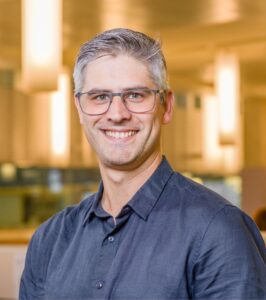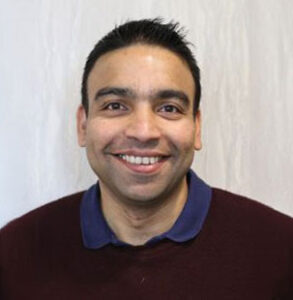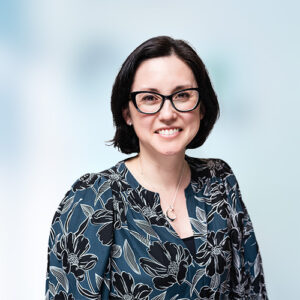What is the Inspirational Research Grant?
TOGA’s Inspirational Research Grant has been created from philanthropic donations to increase research into prevention, treatment, or improved lives of those living with thoracic cancers. To be successful, projects must have been designed in consultation with consumer representatives.
This is the second year these grants have been awarded, each worth AUD $50,000. Additionally, we have teamed up with ALK+ Australia to award a grant to a research project focusing on ALK+ NSCLC.
The 2025 Inspirational Research Grant Recipients

Project:
Pioneering Lung Cancer Microbiome Research in Australia: Standardising Sequencing, Bioinformatic Analysis and Clinical Associations Between Interstate Institutions.
Summary:
Research has shown that gut microbiome composition can impact how lung cancer patients respond to immunotherapy. Recently, scientists have also identified a distinct microbiome within the lungs, and disruptions in this lung microbiome—termed dysbiosis—may influence both treatment outcomes and disease progression in lung cancer.
Through metagenomic sequencing, samples from the lung and other mucosal surfaces will be analysed to accurately map the lung microbiome’s taxonomic and functional makeup. This microbial profile will then be examined in relation to treatment responses, assessing whether the lung microbiome contributes to treatment outcomes.
About Dr Adams:
Dr Mark Adams is currently a Senior Research Fellow (Competitive Grant Researcher Agreement) at Queensland University of Technology (QUT). He completed his PhD at the Mater Research Institute-University of Queensland in 2012 and with the support of an NHMRC Early Career Fellowship, he commenced postdoctoral work at the Translational Research Institute (TRI) on the Princess Alexandra Hospital campus with QUT.
Dr Adams is now based at Kelvin Grove, QUT where his team’s research focus is seeking to exploit cellular programs that regulate genome instability, cell cycle and cell growth to identify novel therapeutic avenues and improve therapy response for lung cancers.

Project:
Evaluating the Impact of the Lung Microbiome on the Efficacy and Toxicity of Immunotherapy in Lung Cancer Patients
Summary:
It is known that the microbes that make up the gut microbiome can influence the response to immunotherapy in lung cancer. Recently, it has been established that a microbiome also exists in the lung, and disruptions in the lung microbiome, known as dysbiosis, have been implicated in lung cancer treatment response and progression.
Using a technique known as metagenomics, samples from lung and other mucosal surfaces will be sequenced to robustly quantify the taxonomic and functional composition of the lung microbiome. This lung microbiome signature will be correlated with the development of immune-mediated adverse events to determine if the lung microbiome plays a role in development of toxicity to immunotherapy treatment.
About Dr Parakh:
Dr Sagun Parakh is the lung cancer stream lead at the Austin Hospital. He is jointly appointed to the Olivia Newton-John Cancer Research Institute (ONJCRI) as a post-doctoral research fellow where his research focus is on biomarker and novel therapy development in solid tumours.
The 2025 ALK Positive Australia and TOGA Inspirational Research Grant for ALK+ NSCLC Recipient

Project:
Unravelling Genomic Diversity in ALK-Positive Non-Small Cell Lung Cancer: Insights from Paired RNA/DNA Sequencing of Circulating Tumour Cells
Summary:
In ALK- resistant NSCLC progression following therapy, distinct clonal cell populations can be found. To date, testing has not been sensitive enough to determine if more than one cancer cell clone is present at diagnosis, and whether differences in clonal populations can be used to predict response to, or sequencing of treatments. This project employs a novel, new and ultrasensitive method to examine cell clones that may be present at diagnosis of ALK+ metastatic NSCLC.
About A/Prof Chin:
A/Prof Venessa Chin is a researcher at the Garvan Institute of Medical Research and medical oncologist at St Vincent’s Hospital in Sydney. Specialising in genomics and cancer research, her work employs advanced genomic technologies to enhance cancer diagnosis and treatment. Her research focuses for integrating novel genomics technologies to uncover novel biomarkers and therapeutic targets.